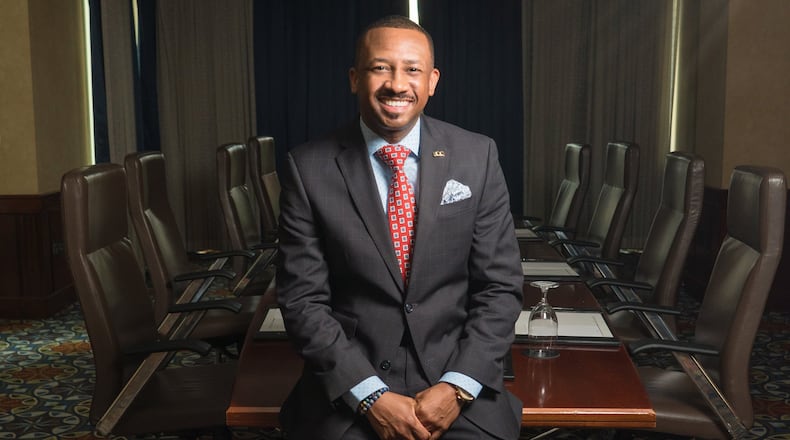Atlanta-based Morris Brown College’s new leader is working on a plan to regain its accreditation, more than a decade after losing it due to financial aid fraud that nearly caused the school to shut down.
"We will restore Morris Brown College," Kevin James, who became interim president March 1, said in a meeting with college supporters that was posted on the school's Facebook page Monday.
Gale Gay, a spokeswoman for the college, confirmed to The Atlanta Journal-Constitution that Morris Brown is seeking accreditation from the federally recognized, Virginia-based Transnational Association of Christian Colleges and Schools.
“We will be accredited within 12 to 18 months,” James told the audience to loud cheers.
Timothy Eaton, the association’s president, told the AJC Tuesday that Morris Brown has sent some documents, and a meeting is scheduled in April. The key areas the association will review as part of the accreditation process include Morris Brown’s leadership, faculty, finances, students and learning resources.
Eaton, though, said it typically takes three to five years for the association to approve a school’s accreditation.
The association last fall gave Augusta's Paine College "candidacy status" for its accreditation application. The status gives Paine all the rights of a fully accredited college, which allows students to receive federal financial aid and their degrees to be recognized by other schools or employers. Like Morris Brown, Paine has struggled with financial problems.
>> RELATED | WATCH: Morris Brown is still open
Because Morris Brown is not accredited, students are not able to receive federal loans and enrollment plummeted from its peak of about 2,700 students to less than 100. The college currently has 42 students, James said.
TRACS is also the accrediting agency for more than 70 institutions, including Beulah Heights University in Atlanta.
Morris Brown was founded by the Georgia Conference of the African Methodist Episcopal Church in 1881. It was the first historically black college and university in Georgia founded by African-Americans.
The Decatur-based Southern Association of Colleges and Schools revoked Morris Brown's accreditation in 2002 after ballooning debt.
To keep the college financially afloat, some administrators committed fraud, including obtaining loans on behalf of students who were unaware that the college had applied for financial aid in their names. One former president, Dolores Cross, pleaded guilty to embezzlement and was sentenced in 2007 to five years’ probation, including a year of home confinement.
The financial problems continued. The college had trouble paying its water bills, faculty and staff. It reached a settlement with the federal government in 2011 to pay $500,000 of its $9.4 million debt and filed for bankruptcy in 2012. One federal tax record signed by the college in 2014 showed Morris Brown had a negative fund balance of nearly $3.8 million. The college had a fund balance of $5.5 million in 2016, according to the most recent federal tax documents available.
He told the audience the key to the college’s plans is fundraising. He said the college has raised $85,000 since March 1 and set a goal of raising $5 million in six months. James urged alumni to help.
“If we don’t believe in us, why should anyone else?” he said.
WHY IT MATTERS
For more than a century, black colleges and universities have produced a significant portion of the nation’s doctors, teachers, entrepreneurs, political and religious leaders, including schools in Georgia like Morris Brown College. Some experts now fear that one-quarter of those schools could be gone within two decades.
About the Author
Keep Reading
The Latest
Featured




